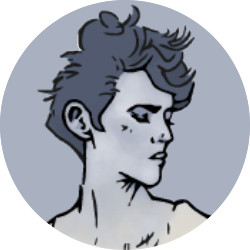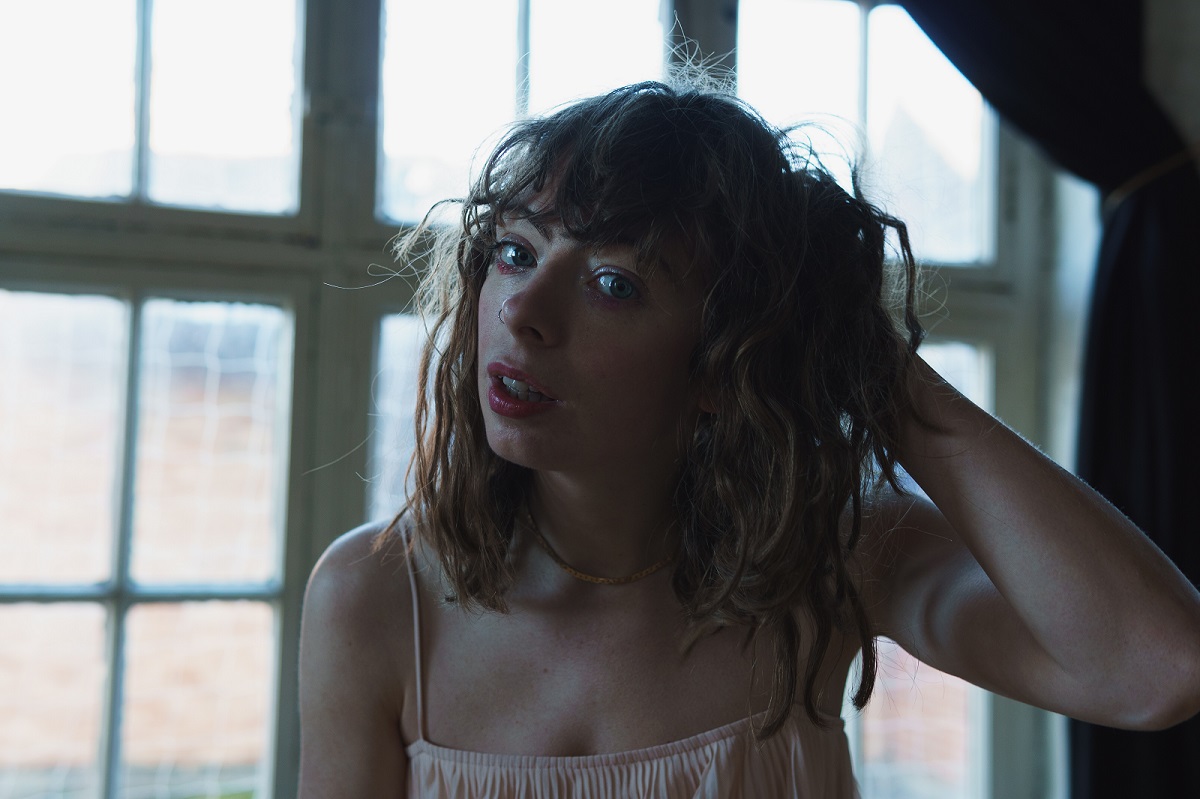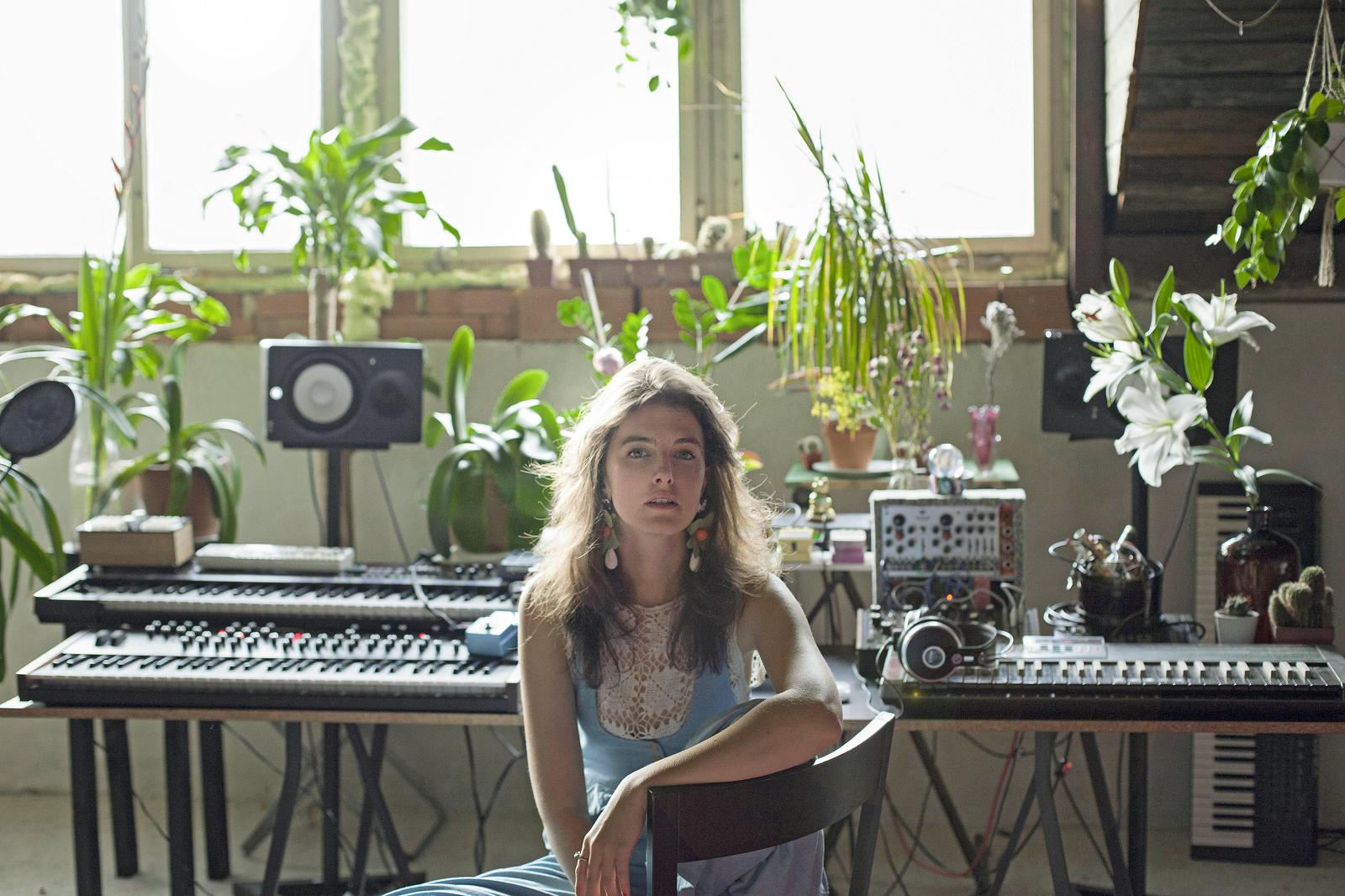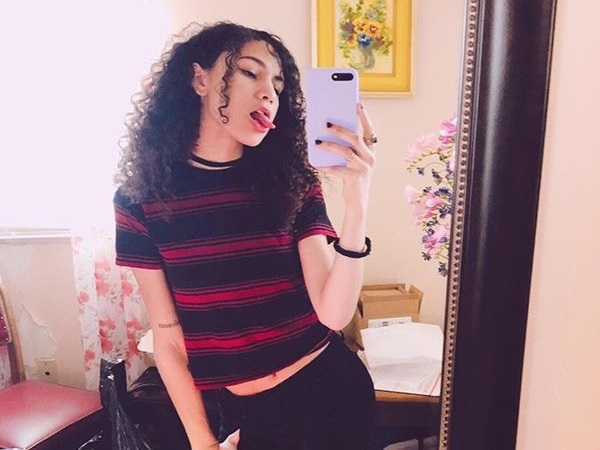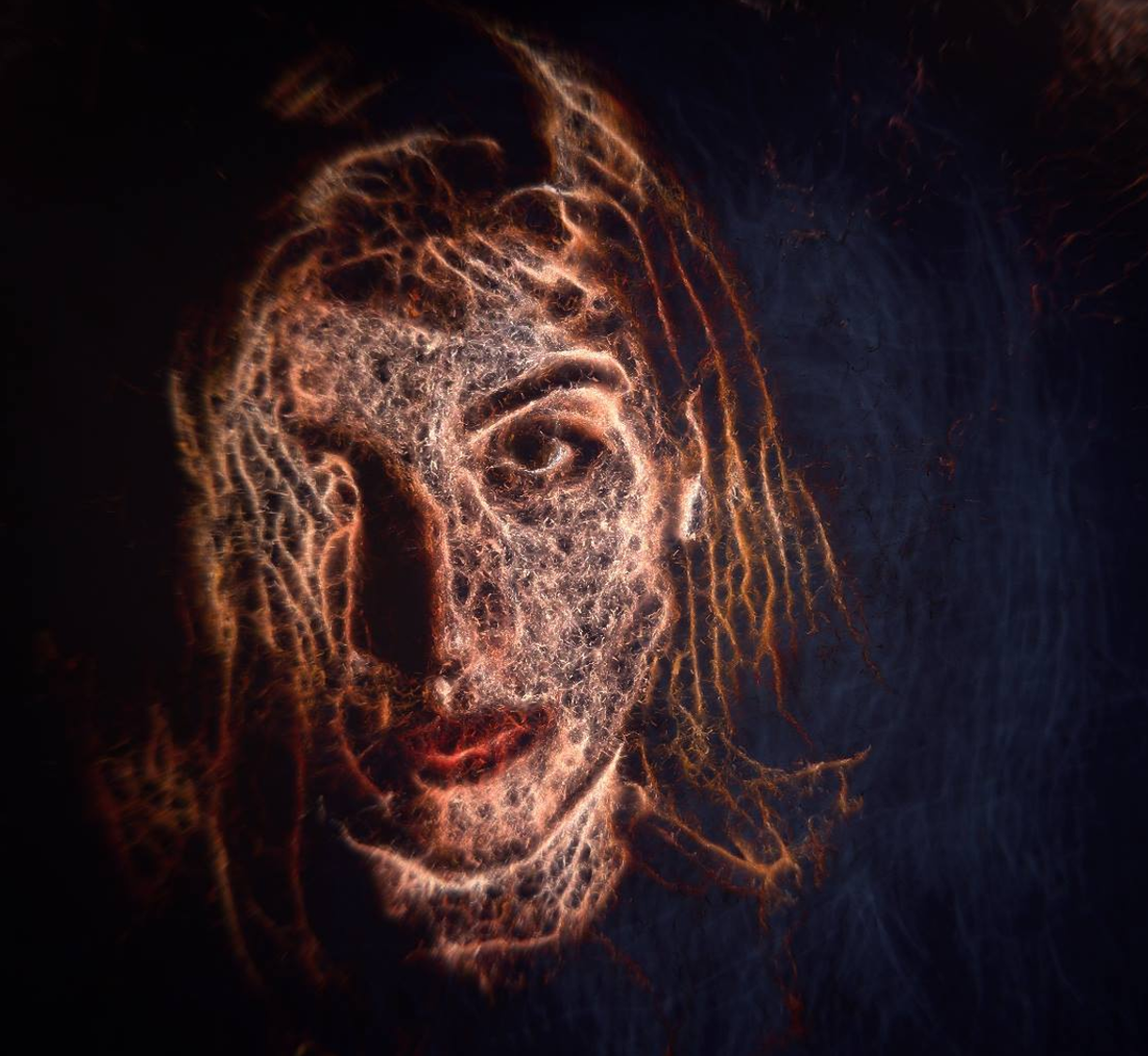 Photo credit: Georgios Cherouvim
Photo credit: Georgios Cherouvim
The Interview
How long have you been writing songs for, and what was is that inspired you to start?
Poppy: I’ve been improvising on the piano and writing things since I was about twelve, when I started doing music at school properly and learning saxophone. I obviously couldn’t sing, playing saxophone, but I got a little keyboard. I had a really inspirational music teacher who introduced me to the blues and soul, which, from a little town in Scotland that I’d grown up in, and then Yorkshire, wasn’t something I really knew. My mum — she was musical, but came from quite a poor background so didn’t have any musical instruments or anything — introduced me to Kate Bush and lots of really inspirational singer-songwriters.
I started doing gigs in pubs at blues festivals in Yorkshire when I was fourteen. Even though I couldn’t drink, I’d be there singing the blues about all this sadness that I’m not sure I really knew about; imitating my idols who were people like Sarah Vaughan and Nina Simone. I’ve got quite a deep voice, so I remember the people in the pub would be like, “You sound like a man!” I’m like, “Oh, thanks…” I’m this little fourteen-year-old girl.
But yeah, I just started writing from then on — probably not about anything too serious: boys or something; silly things.
What was it that actually made you start writing your own stuff?
Poppy: It was mainly because I had such a deep voice — I’ve got a contralto — so, I used to sing the tenor parts in the choir because there were never enough boys. There were never enough songs I could play in the right key. All the female songs were too high for my voice, so I started writing my own, which were much lower, and also transposing a lot of the normal pop songs lower. I just loved improvising; I loved sitting at the piano and noodling on it — figuring things out that way. I didn’t like playing something prescribed; I liked doing it by ear. I always found it quite dreamy and quite a nice meditation.
Do you still find inspiration from the same sources as you did back then?
Poppy: Yeah, I even find myself playing in the same improvising keys sometimes, just for fun. I’ll go back to the same things I wrote as a teenager: the same motifs and things, just for comfort. It will always be a bit different, but it just has this nice nostalgia to it.
Did you always envision you would make the kind of music you did for your EP?
Poppy: No, not at all. I guess my EP was a little weird and strange. I didn’t know what I was doing — I was writing music and playing in bands all the way through as a teenager and through my twenties, and then I did a music degree as a masters, and I completely changed in the sense that I learned technology. Before, I’d just been recording playing piano and singing quite basically. I did a degree, and learnt all the different software and stuff behind music, like Ableton and Logic. We were taught sound design, and I was suddenly like “Wow! This is a whole new world that I don’t know about at all.” It was completely alien. I guess I took what I already knew and just experimented.
I’m so rudimentary. I’m still someone who doesn’t have a Kindle, who likes to read books, who’s old-school — has the oldest computer in the world, or did. I’m a bit of a Luddite, so it’s kinda nice to be introduced to a new world of sound design and experimentation.
How easily did you pick all the new technology up?
Poppy: Pretty easily, I guess. I think, even though I’m feeling old, it was fine. [laughs] I work in film anyway, so you have to learn new technology and new cameras all the time. It wasn’t too hard, but I was around people who were like twenty one, and I’m a bit older. I felt like everyone just had it — they’re born knowing how to code — and I was just like, “I have no idea about Ableton.” But once you spend even like a week or so just looking at it everyday, you suddenly realise it’s not as hard as it looks.
Well, I’m old enough that the long-time redundant Mixman Studio Pro software was something I spent a lot of time tinkering with as a kid.
Poppy: I had an old Zoom recorder, and that’s all I recorded everything on — it was like recording something on your phone, and that was it. My school didn’t have anything. We had one broken piano and a cassette four-track — you could have four instruments and that was your song; that was it. [laughs] I wrote all the music out by hand on manuscript paper… I didn’t grow up with computers, because my school was quite poor. There were computers — I’m not that old — but we just didn’t have them. [laughs]
What’s your process now then?
Poppy: I don’t really know. That makes it sound a bit like magic, but I just know that I’ve got an emotion that I want to get out, and I’m not sure how — it just sort of comes out. I don’t know how to describe it. It’s not like I sit there and work out an entire song; I’m just feeling what I feel and then I either start on the piano, or I sing, and I start messing around with things.
I like the idea of a song being a rough canvas, and you’re experimenting with colours. A lot of the music that I write is stretching sounds and making things sound not quite like they are. I started playing the bass in the songs, and it made me write differently, because I don’t really play it. It made me play in different keys, different rhythms. I like to not just stick at something I know, like piano and voice. I also love disarming listeners, so I’ll detune my voice to sound not quite like a woman — kinda like a man, but a bit ambiguously. I just like playing around with it. Maybe that makes it unlistenable, but I just like the experiment of it. You’re looking at a canvas, and not everything has to be so obvious when you’re looking at art, so why does music have to be such an obvious state or emotion? It can be nuanced, weird, abstract, discoloured, strange and distorted.
So the mysterious ambience of your music is deliberate then?
Poppy: I suppose so. Maybe it’s just me. It’s not like I’m sitting there going. “Right, I’m gonna make this weird and unlistenable.” I suppose if something sounds a little too much like pop, I would probably try and mess around with it more. I’m not anti-pop either. I guess, because I do listen to quite weird stuff, I don’t actually know what’s weird. Something might sound weird to someone else, and to me it sounds like the perfect pop song. Listening to people like Fiona Apple, Björk, Jenny Hval and Aldous Harding, your weird-factor’s really off anyway. [laughs]
I think, having gone to Goldsmith’s, they make you listen to all-sorts, from musique concrète pieces and Schoenberg, to Stockhausen and the big producers like Trevor Horn and what’s happening at the moment in the music scene and in pop. I suppose I already had quite a weird listening palette anyway, but Goldsmith’s also introduced me to so many others, like people who would record their washing machine. I’d go around the house with my electric magnetic microphone recording weird static electricity from the microwave and trying to put it in my songs. They were like, “Go and experiment.”
What is music? Like, Christian Marclay, who recorded a guitar being dragged from the back of a car as a musical piece, but also a statement for the lynchings that went on in the American South. That’s obviously unlistenable in some ways, and listenable in others.
I suppose I’m influenced by a lot of things, but I do listen to the weirder end of music. But then, I’m likely to listen to Prince and Michael Jackson as well, if I’m in the right mood.
Has the reaction you’ve had to your music thus far been that it’s weird?
Poppy: I’ve had a lot of reaction to it, which has really been good for me in the sense that people have said, “Wow, this is really weird”, or “It’s like taking drugs.” I put out some very weird music videos with them too, because I think people consume music visually anyway, and I work in film so…
I think people’s reactions have been twofold, like, “The videos creep me out, and the music’s also weird and creepy”, but they tend to caveat it with, “I really like it.” But, I suppose if you cut up vocals like I do on NDN, for example, you can’t really hear what I’m singing about, and I think that’s quite disarming for people. That said, I’ve had a lot of people do things for free because they’ve really loved it: people got in touch to master it for free and mix it for free because they really like what I’m doing. I’ve had people be like, “It’s a weird mix between Aphex Twin, Björk and Fiona Apple, and that’s a good space to be in.” Those are people who I really respect a lot, so if I can even remotely be put in a category as some sort of strange hybrid-child of theirs, that’s great.
How long does it take for you to develop an idea then?
Poppy: Some are written in a day, and some are written over months. It just depends, and most of them I never feel are ever finished. You just have to get to a point where you’re like, “Okay, I’m giving this to the world, and it’s yours to take on wherever you feel you’d like it to be.” You’ll go crazy if you don’t. You always have to give yourself a deadline, or you’ll sit on it and tinker with it forever.
So is that something you find difficult? To say, “Right, that’s it. Finished.”
Poppy: Definitely. It’s never finished. It’s like any piece of art: you just have to draw a line under it. If you’ve just got to release your own music with no deadline, it’s very hard to work towards something and say, “That’s it.” You have to accept it, but are you ever happy with it? I don’t know. I don’t know any artist that’s ever that happy.
Tangential to that point, artists often seem keen to point out, such is the time it can take to release music, that their latest release is actually outdated, both emotionally and in terms of artistic proficiency; that it’s a snapshot of where they were, but doesn’t necessarily represent where they are now.
Poppy: For sure. I mean, Strange Jealously, which got really well received because the video went viral last summer — viral for me, anyways; it got over a 100,000 views — I wrote two or three years ago, in a space I was in that was quite sad. You have to relive it two or three years later when you don’t feel that sad anymore, and you’re like, “Oh, that song’s about that, but I don’t feel it now.” It’s a compliment, obviously, but it’s funny because you don’t really want to talk about it. You think: How can I ambiguously talk about this song without giving away what it’s about? [laughs]
So, when you listen back to older songs, it doesn’t stir things up again?
Poppy: I don’t think so. It’s like, I have diaries, and I actually find it quite entertaining to read about a breakup. At the time of writing it was so destroying, and then you read it a few years later and you feel absolutely nothing. You’re like, “I felt that much for that person? I was in that bad a state?” You don’t laugh, because obviously you feel the pain, but you think: Yeah, I’m so much better now. So, you listen to a song like that and you’re like, “I’m glad that something creative, positive came out of this terrible time.” It doesn’t bring me to sadness.
Do you think of your music as being sad?
Poppy: I’ve definitely had a lot of reviews where people have said it’s melancholic. I think that maybe does reflect who I am. I’ve had quite a lot of things happen to me in my life — it has been quite painful and sad, so maybe the music is melancholic. But, that said, the album Altered States is about me having epilepsy, and weird realities and strange stuff. One of the songs, Tarmac, has got a really upbeat beat, and it sounds really happy, although it’s about me lying in the road having had a seizure. I’ve written it in a kind of fun state because, actually, with seizures, you don’t always get this sadness — sometimes you get this euphoric, crazed feeling. You can have lots of different feelings in epilepsy.
The record, to me at least, does have quite a claustrophobic feel; it’s very close. Does that have any sort of connection to the seizures?
Poppy: Maybe. I did want the vocals to be mixed very close so that when you’re listening they’re almost whispering in your ear. I mean, there’s a certain sort of hibernation with epilepsy where, if you have seizures, you just feel like you can’t go out because you’ll end up falling in the road, scaring people, hitting your head, embarrassing yourself. So, there’s a certain sort of recluseness that can overcome you sometimes. It’s actually people’s fear of you and their stigmas against you, more than yourself. There’s certainly a kind of cloistering feel to having it. I’m kind of in it, so I can’t really tell you if I was thinking from a claustrophobic point of view, but if that’s what you get from it, it might be because that’s what I am projecting.
What kind of mood are you in when you do your best work?
Poppy: Oh, probably really dire, depressive states. [laughs] I hardly ever write when I’m happy. I have to be quite reclusive when I want to write, because you become all-obsessive — I know I do, anyway. I don’t go out. I write into the night, because it’s very quiet then and there are no distractions from work, or flatmates or whatever. I get quite obsessed, quite insular and don’t sleep. I think there’s bit of a crazed mindset you have to get into to write music. It’s certainly something that you don’t start casually with an hour to spare. For me, it’s like, “Okay, I’ve got to dedicate many hours if I’m gonna do it.” You kind of go under.
During those times, are you able to really press on with what you’re doing?
Poppy: Yeah, very much so. Especially if it’s something where I’m suddenly like, “Oh, this is interesting.” I get really into it, just playing around with sounds, thoughts, lyrics and ideas. I’ve got so many unfinished songs and bits of things. I really enjoy the process of creating, probably more so than releasing it. The idea of creation is definitely more exciting than even playing live. It’s a bit of a drug.
How do you keep yourself motivated when the high of creation wears off then?
Poppy: I think it’s about not doing it all the time. I think if I only did music, and I was just in my room creating all the time, I could certainly go crazy. I think, because I do a lot that’s creative in my life anyway — I’m a film director, I draw, and I write a lot — there are lots of different highs and lots of different mediums, and if music wasn’t going well, I’d just stop and go and do something else, like paint or work on my film ideas. I feel like if you’re only in one thing, you can go crazy, and it can make you really depressed.
Also, you end up putting all your eggs in one basket, and it’s very demoralising if you don’t get somewhere. For me, I have no deluded notions that I’ll be a pop star overnight, but I like what I do, and if people like it then great. I know I’m not gonna be the next Taylor Swift — I don’t write music like that — but, so long as I’m doing something for me… I think creativity does come and go, and you’re not meant to do it all the time. If you are expected to do it every day, it becomes a job, and it’s not creative — you become jaded and tired, and you don’t make your best work. You’re not gonna be creative every day and write things that are perfect every day. That’s okay. Give yourself space. Give yourself a break.
For you then, would it be fair to say that it doesn’t matter so much what the medium is — whether it’s music or film or art — just that you are creating?
Poppy: Creativity a hundred percent matters to me, but I’ve always known that music is the most creative thing for me. As a film-maker, I have to write ideas for channels and for people to give me money, so you are, to a certain point, ticking boxes. It’s very creative but, at the end of the day, you’re making something for a channel, and that channel worries about audiences, so you have to consider that. It’s not a hundred percent creative in the way that you might want — you’re structuring something for funding and for audiences — whereas, with my music, it can be exactly how I want it to be, knowing that I don’t have to make very much money from it if I don’t want to; knowing that I don’t have to have a number one; knowing that the music doesn’t have to fulfil a particular scene in a film. It’s a hundred percent mine, and that, for me, is the greatest freedom ever. I think if I did actually earn money from music, and I had to write for a living, it would be a very different experience.
Okay, so Is there an element of your craft that you would especially like to improve upon?
Poppy: I’m always wanting to improve on everything. Never good enough. At all. I’d love to be a better musician. I’d love to practice my saxophone more; I’d love to be a better bass player, pianist, singer. I never have enough time in the day, and I think you’re never gonna be the world’s greatest; someone like Keith Jarrett is probably one of the world’s greatest piano players, along with Thelonious Monk and all sorts of people, but I’m sure they even think they can be improved upon. I don’t think anyone in any creative industry, unless they’re incredibly non-aware and very vain, think that they don’t need to improve on anything. I love the process of learning — that’s why I loved going back to school. I always will want to learn and experiment and do things differently, because that’s part of the fun of it. I’m never gonna think I’ve made it — I don’t think anyone ever does.
Given how experimental your music is, how easy do you find it to get on shows and meet like-minded artists?
Poppy: That’s quite tough. I think a lot of promoters don’t bother to listen, and they’ll just see ‘Woman playing piano and singing. Got to 100,000 views on her video. We’ll put her on’, without even remotely listening to the music. You see who you’ve been put on the bill with: bands who sound absolutely nothing like you. You think: Right, I’m gonna be the one that really sticks out here, and I’m not sure the audience that are coming for the other bands are gonna like it.. I find that frustrating.
I’ve run nights for women who are doing experimental music, and that’s nominally a way to do it, because I know lots of people doing similar things, but I also don’t love always having to do that. I have been asked by other places — there are obviously weird events here that cater for us, which is good, but, it’s smaller, and I’m sure people would like me to just play piano and sing; do more normal songs. Having lived around the world quite a bit, London is one of the best cities — apart from New York and Berlin — to play music in and be experimental. So, I can’t fault it — it’s just that you need to know your audience, your scene, the venues that are going to accommodate it and the good promoters. Once you do, it’s alright.
What do you feel that you gain from being artistically, creatively, inclined?
Poppy: I think I’d go completely mad if I didn’t have an outlet to express myself. I’ve actually had quite a lot of conversations with friends about this — about having an outlet to express yourself — and I think a lot of people who don’t have that get quite depressed and don’t get to be heard. A lot of people’s woes can come from not being listened to; not realising what their creative potential might be — be it drawing, music, literature, dance. People just don’t have the time, or haven’t been nurtured in that way. I think it really gets people down. I know I would be really down if I didn’t have music as a way to express how I felt.
I see people in the drudgery of London, maybe not having any way to express themselves, and it’s really sad. It’s quite a freedom to have. I guess it makes me who I am. When I’m freelancing and not working in film, I’m doing a lot in music, and I suppose I would be more depressed if I didn’t have music to do outside of film. You need to have lots of facets to who you are — I’m not just a film-maker; I’m a person who enjoys lots of different things. Thank goodness TV is not my life completely. [laughs] I’d be very depressed, as much as it’s a privilege to work in film and TV… I do other things as well — I’m a nuanced person.
People should be able to do things for free — they might have a hidden talent. You might be able to sing, or draw or dance, but everyone always says, “Oh, no, I can’t.” People always look at someone who’s very successful and go, “I could never do that”, but those people weren’t successful overnight — they have this stage of being beginners and trying, seeing and perfecting.
Is there anything that you specifically hope to communicate to people through your work?
Poppy: Freedom. The thing I live by is freedom, and I hope people listen to the music and feel some sense of that. Hopefully my music just says you can be experimental, push boundaries and be weird, and it’s all okay.
When you’re playing your songs or listening to them, do you feel that freedom yourself?
Poppy: Yeah, I do. I feel a day-dreaming freedom to it, and I day-dream a lot — I think it’s necessary in London. But, to be honest with you, I’m not really listening to my own tracks unless I’m working on them. I find that ever so slightly painful and narcissistic. I’m listening to the next tracks I’m writing; listening to them to understand how to push them forwards. I’m not really listening to things that are out there already, because they were done, and they’re for other people now — they’re not for me anymore. It’s like sitting as a king on all your treasures and admiring it. [laughs]
There’s nothing wrong with a bit of self-admiration.
Poppy: No, I suppose so. I’m not very good at that.
Finally, to what extent would you like your creative output to define you as a person?
Poppy: I don’t know. It’s a hard question for me, because I feel like I do many things. Who I am as a person is definitely creatively driven. I know I’d be a terrible person to go to work in the same place in the same office doing the same job, like an accountant — I’d be terrible.
I’m in a privileged position that is creative, and all of the creative things that I do, do define me as a person. I had very hippy parents who were artists, and for me it was like everything was creation there. You were sick, and the orange of your sick was like a beautiful colour that you could have on a canvas. My mum used to make busts, and take animal skulls from the countryside and put them on perspex; the light shining through would create shadows on the wall. Everything was art. If you live like that, you end up maybe being a bit crazy yourself, and that defines you. I guess I’m maybe not the most normal person in the world.
The creative things that I do, I suppose they do define me as being Poppy, but I’m also just a normal woman living in London. I wouldn’t want to just feel like I live this artistic life that’s only driven by the art — that can also be a very lonely, sad life. The people who are really that doctrinal and dogged in their art and creativity, they never form very lasting relationships and happiness. I’m conscious of that. I’m not going to sabotage my life, my friendships, my loves, for music, although whoever does come into my life has to accept that I’m creative.
I’m not ruthlessly creative is what I’m trying to say. [laughs] It’s a hard question. I’m not about to cut my ear off or anything.
That’s good. Particularly at this precise moment.
Poppy: [laughs]
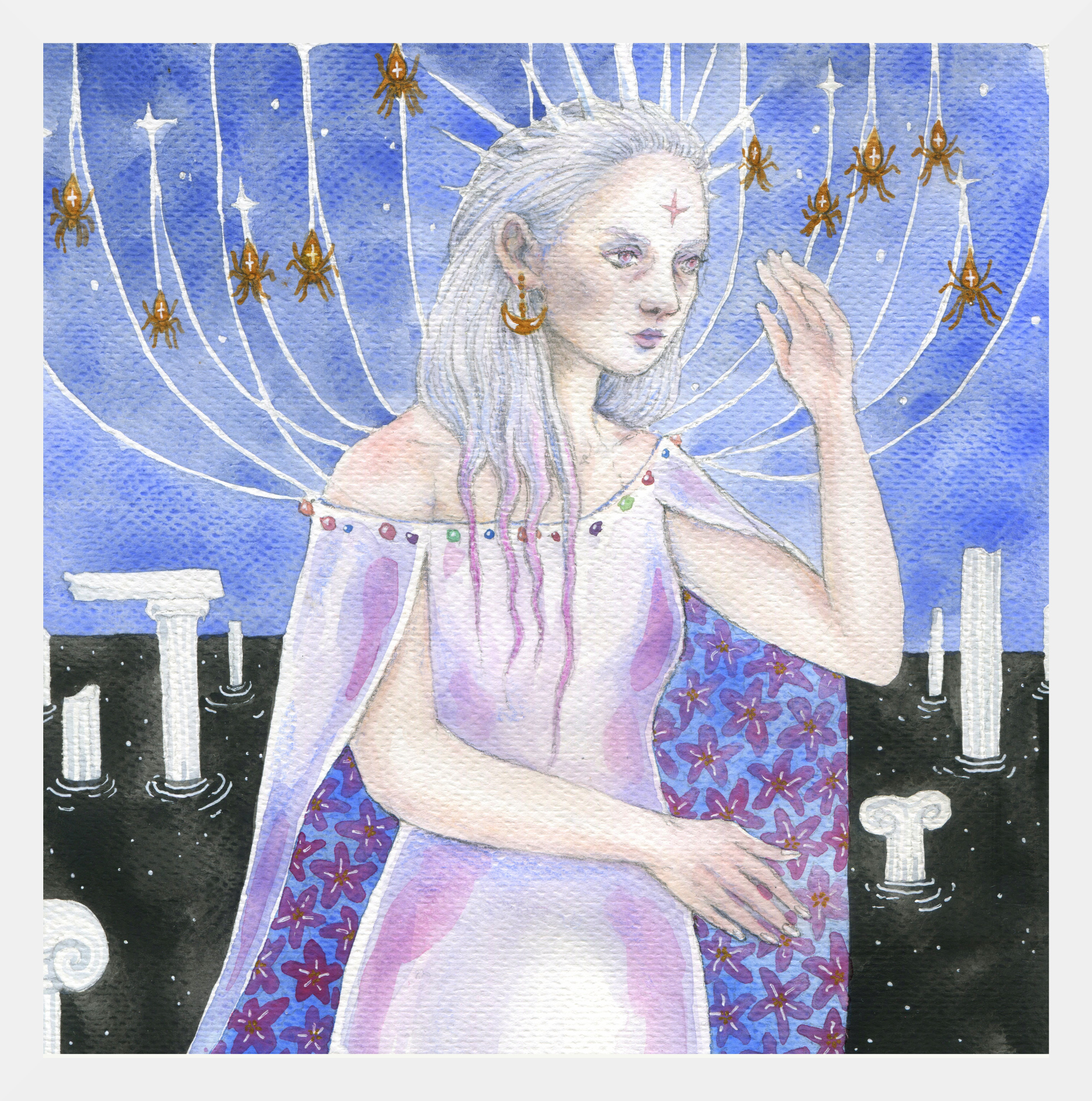 Crøm-lus featured onOneiric Escapism 4
Crøm-lus featured onOneiric Escapism 4You can stay updated with Crøm-lus on Facebook and Instagram, and stream or purchase her music over on Bandcamp.
If you enjoyed reading this interview and happen to think we're doing something right, please consider sharing the link -- whether on social media, or just with a friend, it'd really help us out! We're also on Facebook, Instagram (@alonelyghostburning) and Twitter, so if you'd like to keep up-to-date with the publication of new content, and also provide us with a whole heap of motivation, please do give us a like or follow.
